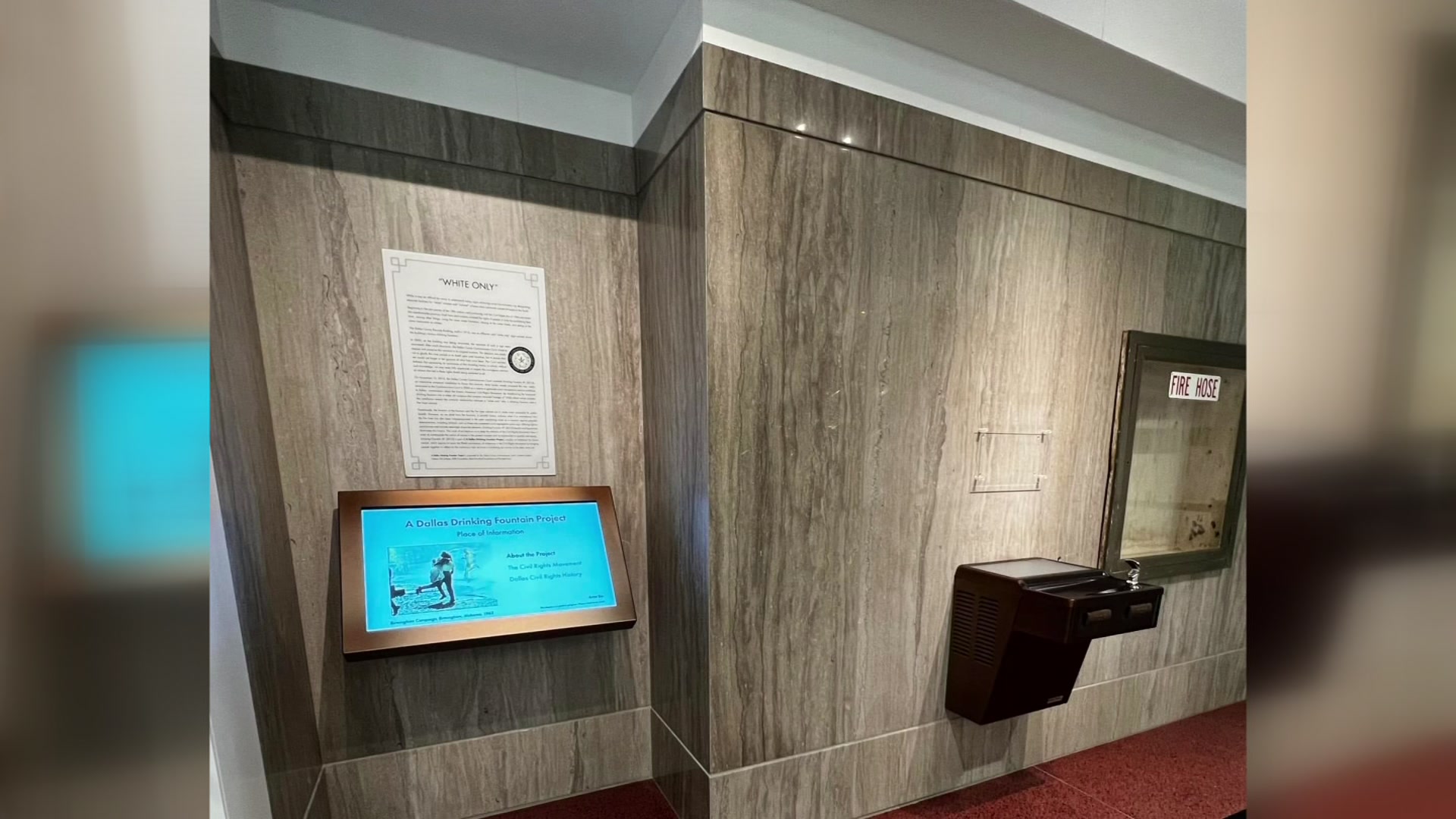A "white only" sign that hung over a pre-civil rights Dallas County water fountain is on display again at the county records building.
A rededication ceremony for the installation was held Thursday morning after it was temporarily removed during building renovations.
The faded sign that read “white only” was found near a drinking fountain in 2003 when another sign, that had covered it, fell off the wall. Then, in 2013, it was memorialized with an art installation. Recently though, it was removed during the renovation of the building.
“One day entering from the south side of the building, the reflection hit. Indented in the marble was for 'whites only,'” recalled Dallas County Commissioner John Wiley Price, who was instrumental in making sure that the sign, and the art installment surrounding it, are front and center.
Get DFW local news, weather forecasts and entertainment stories to your inbox. Sign up for NBC DFW newsletters.
Price said it is important that the conversation around the segregation-era sign doesn’t fade.
“So that people don’t forget,” Price said. “I’m going to continue with every breath in my body, to continue to lay out what the facts are. It’s not to make people feel uncomfortable. It is designed so that you will know the true history.”
Price said they have now discovered new memorabilia and landmarks of the segregation era from other county buildings. This includes a reminder of “colored women’s restrooms.” Those items will also now be on display.
The installation is accompanied by a 15-second video, that Price said, demonstrates how water was used and weaponized against Black people.
Price said that not everyone was onboard with his mission to keep the sign visible. Some people in the Black community did not want it as a reminder of dark times.
“The reason I want to preserve it is for posterity and for our children, so they all know we haven’t always, it hasn’t always been, you know, as they see it now,” said Price.
It was a lesson well received by 12-year-old Asher Caruthers, who is passionate about history, and came to see the re-dedication
“I like how you can learn from the mistakes people made, and you can make it better,” said Caruthers.
NBC 5's Julie Fine contributed to this report.



